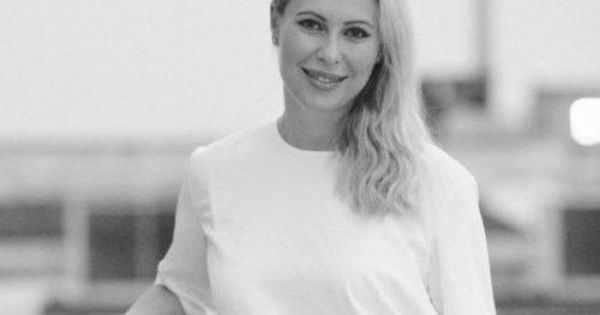
We all know sleep is beneficial to our career—we focus better, get more done and communicate more clearly when we’re well-rested. Yet, so many of us don’t get the shut-eye we need.
Sure, I’m a healthcare professional, but I’ve been there too. When I was working the 7-3:30 shift at the hospital while growing my private practice and writing on the side, I once fell asleep in Downward Dog position at yoga. Yes, I fell flat on my face, and yes, it was the wake-up call I needed to get real about the sleep piece of the self-care picture.
I spoke with Kathrin Hamm, founder of weighted bedding company Bearaby, about how her own sleep struggles led to her creating a game-changing product that can help insomnia sufferers worldwide .
Bearaby founder Kathrin HammKathrin Hamm
Jess Cording: How can problems with sleep impact our work performance?
Kathrin Hamm: When I was working in finance at World Bank and constantly traveling I often couldn’t fall asleep or was waking up multiple times a night. In the morning I felt like I hadn’t slept at all. Yes, you can squeeze in more work hours, but less sleep impacts the quality of your work. I found I made poorer decisions, was less patient with myself and the people around me and I was less focused when I got less sleep. If you’re a night owl, you may think you get some extra productive hours but that productivity is an illusion—you’re less productive during that time than you would be if you had been well rested. It’s also about how you behave during the day. That can be like a domino effect if you look at it in an organization.
Cording: What was the inspiration behind Bearaby?
Hamm: I was traveling Monday morning and coming back Thursday night, sleeping in hotels during the week. On the weekends, the pattern continued: I couldn’t fall asleep or was waking up at night. I was looking for a natural sleep solution—I didn’t want to take pills. I came across the concept of a weighted blanket. It’s been around a long time, I thought, so why not try it out? It arrived when I’d come back from a 13-hour flight from Bangladesh. I used it for an afternoon nap and woke up four hours later, which had never happened before. I was so excited. I continued using it at night, but I found this bulky blanket made me sweaty. I started looking for weighted bedding—sheets, a comforter. I thought somebody had thought of it, but I did a search and found nothing, no product innovation.
I worked on a prototype with a German manufacturer and received a lot of encouragement from family and friends who’d tried it. It was when I put it on a crowdfunding platform and systematically started talking to a wider audience that I realized this was something people really wanted. After a four-week crowdfunding campaign, we shipped out to people in 37 countries during our first month.
Getting enough quality rest can help you perform better at work.Getty
Cording: Do you have a sleep routine you follow?
Hamm: During most of my young adult life, I was a night owl, working late, mistakenly thinking it made me more productive. More recently I actually have become a morning person. I try to start my day before 6 with a workout and a healthy breakfast where I take my time. By the time I get to the office at 9, I’ve already had three hours of “me” time.
I work long hours, but I still make sleep a priority. I take a magnesium supplement and use a scented pillow spray. I like to read for an hour before bed, and I keep a journal by my nightstand where I write down 3-5 things that went well that day. They can be business things, but they can be smaller things too—the learning and progress come in the things I do on a daily basis. It also has the added benefit that it empties my mind before I go to sleep. I vary between a 15-20 pound comforter—after a stressful day I use the 20-pound one!
There are so many things we use for sleep—healthy eating, sleep trackers, no phone in the bed…I found that all the measuring and tracking was stressing me out, so I try not to go down that route. If I have one of those days where I go to bed still thinking about things, I tell myself, if I can’t sleep it’s not a big deal and that I can take a 20-minute afternoon nap. It helps take the pressure off. I also encourage our whole team to take advantage of the napping area we have in our office.
When I started the business, I didn’t pay much attention to my body, but I realized it’s not a sprint, it’s a marathon. Sleep improvement is something that needs to start through the mindset.
